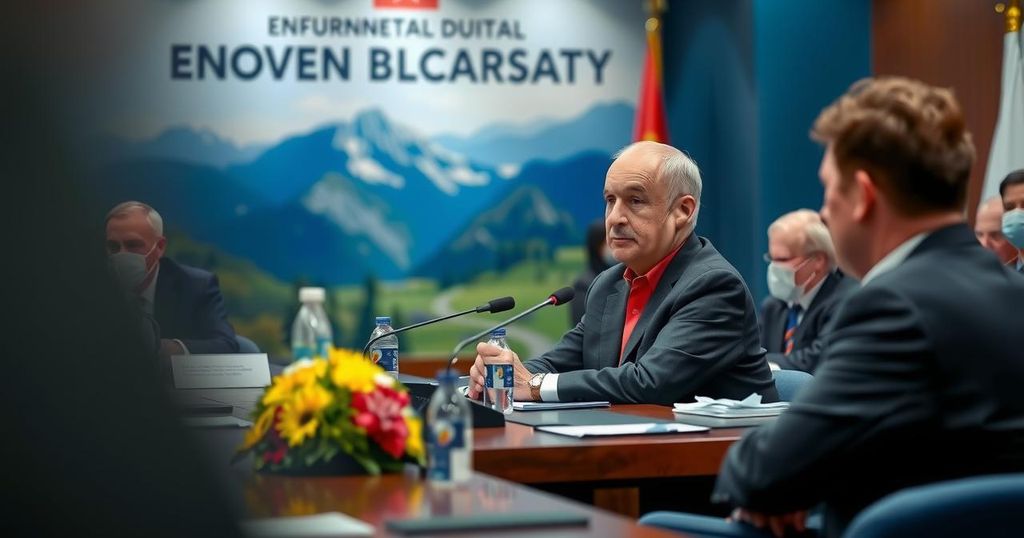Albanian PM Critiques COP29 Effectiveness Amid Polluter Indifference
At COP29 in Baku, Albanian Prime Minister Edi Rama criticized climate leaders for their perceived inaction amid rising emissions. He questioned the summit’s purpose if major polluters continue their harmful practices. Amidst discussions on climate justice and funding, there is growing frustration towards wealthier nations for failing to translate pledges into meaningful support for vulnerable countries.
During the ongoing COP29 summit in Baku, Edi Rama, the Prime Minister of Albania, expressed serious concerns regarding the efficacy of climate negotiations. He forsook his prepared remarks after observing leaders engage in a superficial display, while the real problems of climate change remained unaddressed. Rama criticized the disconnect between their luxurious setting and the lack of commitment to combating rising carbon emissions, which have worsened since the last summit. Rama poignantly questioned the summit’s purpose, stating, “What does it mean for the future of the world if the biggest polluters continue as usual? What on earth are we doing in this gathering, over and over and over, if there is no common political will on the horizon to go beyond words and unite for meaningful action?” His comments echo broader frustration among leaders from climate-vulnerable island nations, who feel abandoned by wealthier countries that fail to uphold their climate finance commitments. Despite calls from various leaders for action and justice in climate finance, and a recognition of rising global emissions, the summit has also seen nations discussing the urgent need for significant changes to international financial frameworks. Leaders such as Muhammad Yunus of Bangladesh and Gaston Browne of Antigua and Barbuda championed the necessity of grants over loans to ensure that climate action does not exacerbate existing debts in vulnerable nations. As more leaders voice their concerns about climate justice and the urgent need for decisive action, the COP29 summit continues to grapple with the harsh realities underscored by the recent Global Carbon Budget report, which foresees further increases in emissions unless prompt measures are taken. The discussions signal a troubling yet essential dialogue about the future of global commitments to address climate change effectively without falling back into empty promises.
The COP29 summit serves as a critical platform for world leaders to address and negotiate solutions to the climate crisis. This particular gathering has been marked by intense discussions surrounding the disparities in climate responsibilities between wealthier nations and those most affected by climate change. Despite significant pledges made in prior summits, leaders are increasingly frustrated with the lack of tangible actions to match these commitments, especially in light of rising emissions and the urgent need for climate justice from developed nations to support vulnerable ones.
In conclusion, the ongoing COP29 summit in Baku highlights a profound disconnect between the rhetoric of climate action and the realities facing vulnerable nations. Albanian Prime Minister Edi Rama’s remarks encapsulate a growing frustration among global leaders, particularly from countries that bear the brunt of climate impacts. The summit’s discussions underscore the urgent need for tangible commitments and actions to combat rising emissions effectively, ensuring that climate justice is at the forefront of negotiations.
Original Source: www.theguardian.com




Post Comment